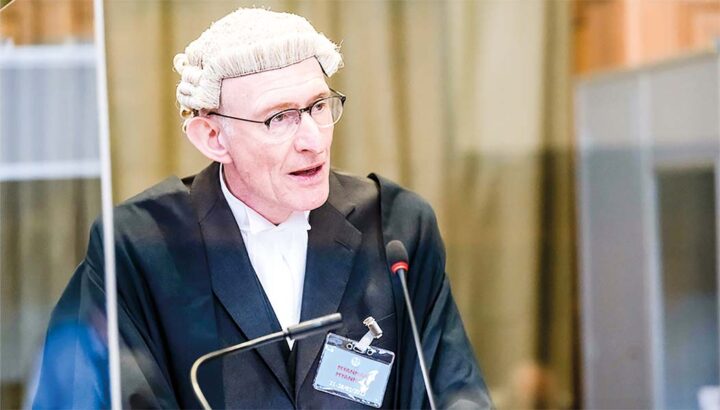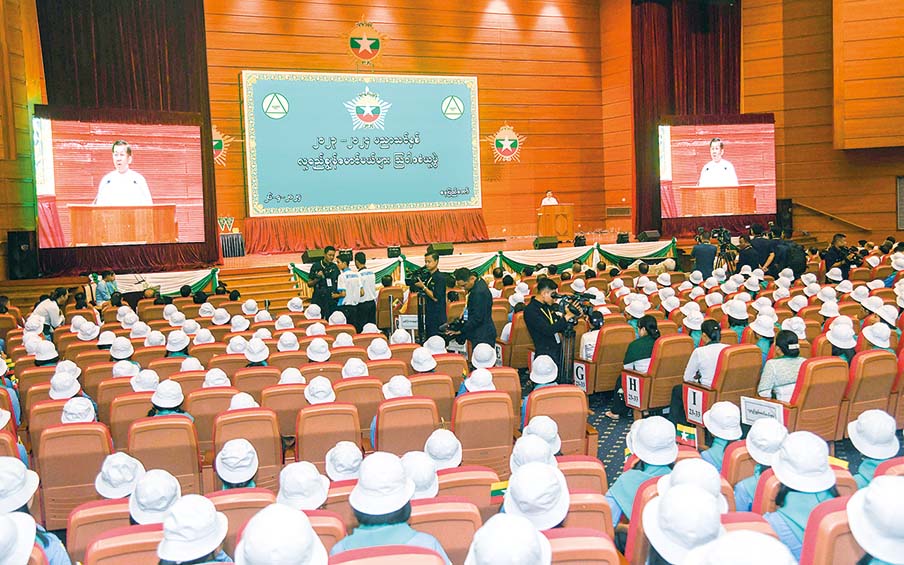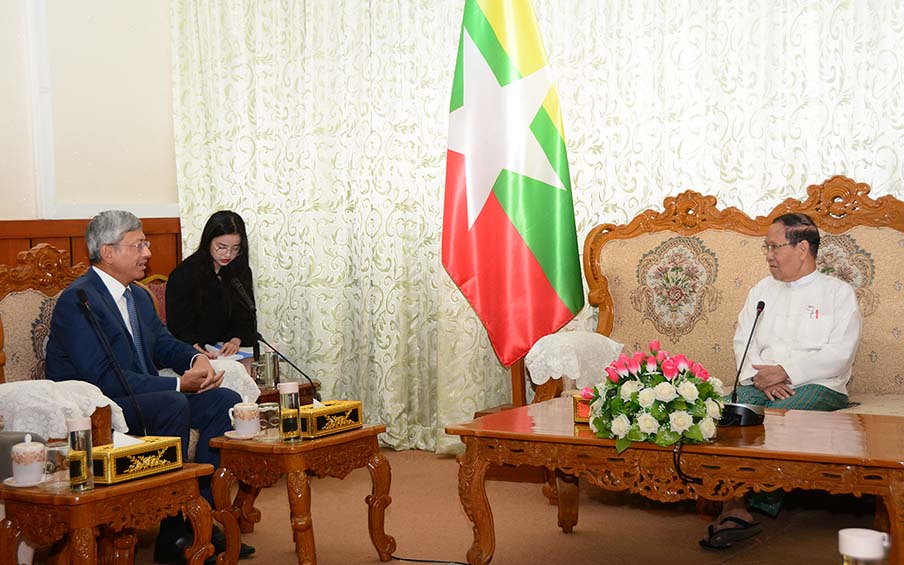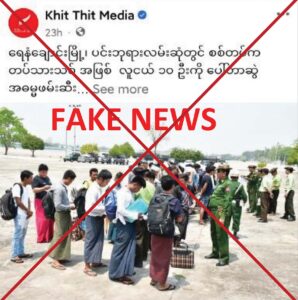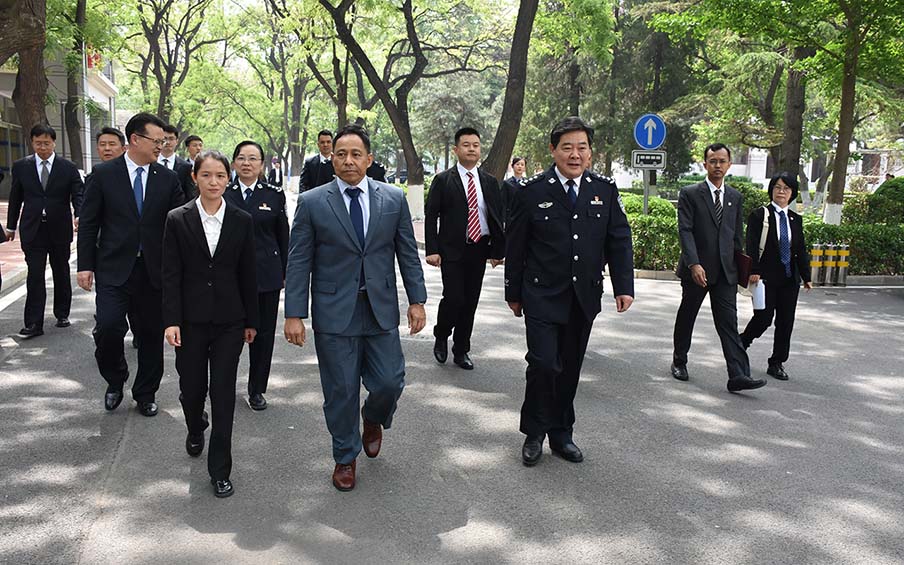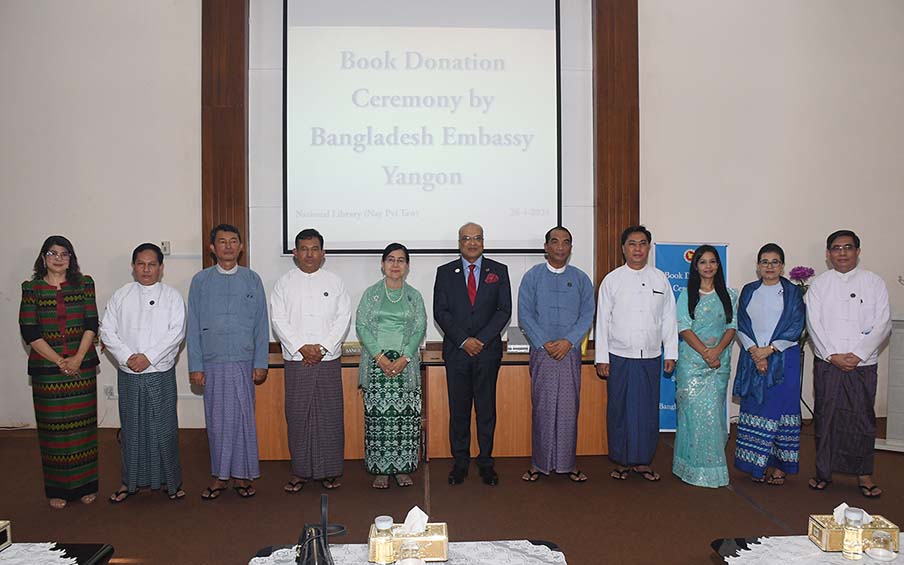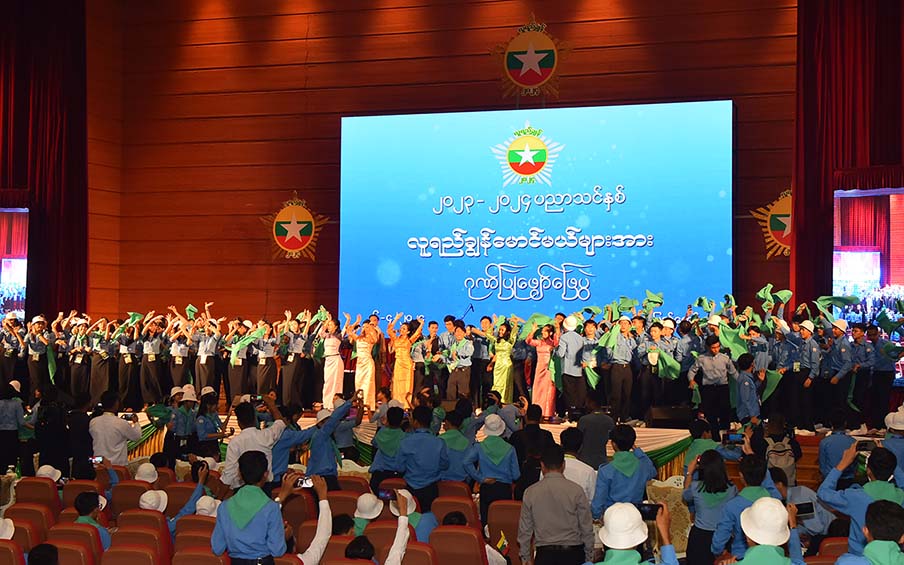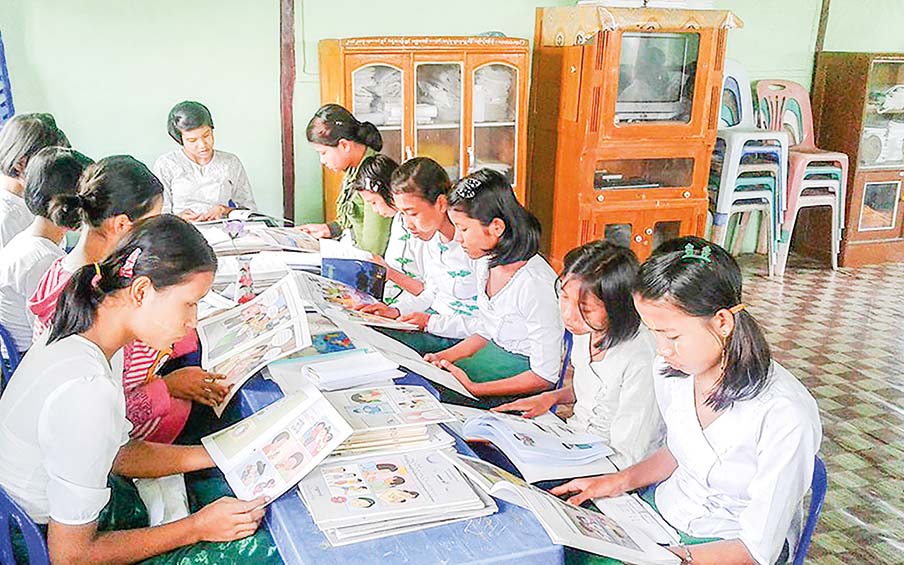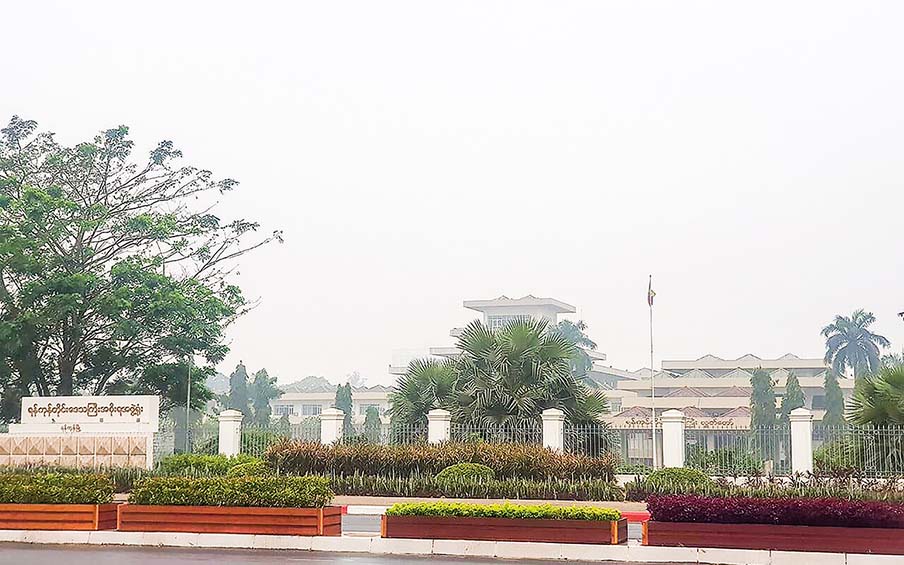Madam President, Mr Vice-President, distinguished Members of the Court
1. It is an honour to appear before you.
2. My task today is to present Myanmar’s second preliminary objection.
3. Let me start by saying that this case is unlike any other case ever brought before you under the Genocide Convention: The Gambia alleges genocide committed outside its own territory against persons who are not its nationals. There is no link whatsoever between The Gambia and the facts of the alleged acts.
4. This raises questions of The Gambia’s standing in this case.
The requirement of standing in international legal proceedings
5. Under customary international law, a fundamental condition for the admissibility of claims is that the State espousing a claim must have the standing to do so. Standing refers to the right to present a claim to the Court. It requires the showing of individual prejudice or individual legal interest in the subject matter of the claim. Such individual interest must be distinguished from a mere general interest that could be invoked by any State.
6. International law does not know of an “actio popularis” giving each and every State standing to challenge any alleged internationally wrongful act before a court 1. The Gambia accepts this.
7. There is no question that an injured State, as the State adversely affected by an internationally wrongful act, has the standing to present a claim to the Court.The Gambia, however, is not an injured State and nor does it claim to be.
8. As a non-injured State, The Gambia must therefore establish its standing before the Court by demonstrating an individual legal interest in the subject matter of its claims. This, The Gambia has failed to do.
9. The subject matter of a claim is determined by the submissions. In essence, The Gambia requests the Court to declare that Myanmar is responsible for violations of the Genocide Convention because it allegedly committed acts of genocide against members of the affected community in Myanmar’s northern Rakhine State.
10. A non-injured State can have standing only if, upon a proper construction of the Genocide Convention, it can be concluded:
First, that it is intended to have individually a legal interest in the observance by every other Contracting Party of the obligations under the Convention, even where a breach of these obligations does not affect its material interests, either directly or through its nationals; and Second, that, in view of the said legal interest, it is entitled not only to call upon the competent organs of the United Nations under Article VIII of the Convention but also to institute with regard thereto contentious judicial proceedings before this Court.
11. Humanitarian considerations cannot in themselves generate a legal interest. As the Court once noted: “It is a court of law, and can take account of moral principles only in so far as these are given a sufficient expression in legal form.”2
12. The question which the Court must thus decide is whether the Genocide Convention vests a legal and not just political or humanitarian interest in the observance of the Convention in The Gambia individually and in its own right, entitling it to request the Court to declare that Myanmar is responsible for violations of the Convention by allegedly committing genocidal acts against members of the affected community in Myanmar’s northern Rakhine State.
13. If The Gambia does not possess such a legal interest, it does not have the standing to seek the requested declarations, even if the various allegations were assumed to be meritorious.
No individual legal interest on the part of The Gambia
Madam President, Members of the Court,
14. Myanmar submits that the Genocide Convention does not vest an individual legal right or legal interest in the Contracting Parties with regard to alleged acts of genocide committed against non-nationals outside their own territory. There is no indication in the Convention that the Court was ever intended to act as a general judicial supervisory authority at the instance of every Contracting Party.
Common and individual legal interests distinguished
15. Let me observe at the outset that the Court has never found that each Contracting State has an individual “legal interest” in the observance by every other Contracting State of the obligations under the Genocide Convention in all circumstances. In its Advisory Opinion on Reservations to the Genocide Convention, the Court stated:
“In such a convention the contracting States do not have any interests of their own; they merely have, one and all, a common interest, namely, the accomplishment of those high purposes which are the raison d’être of the convention.”3
16. And in its Provisional Measures Order in the present case, the Court held that
“all States parties to the Genocide Convention have a common interest to ensure that acts of genocide are prevented and that, if they occur, their authors do not enjoy impunity”.4
17. A “common interest” in the accomplishment of the high purposes of the Convention is not the same as an individual legal interest intended to be enforceable before this Court. In fact, in its Advisory Opinion, the Court expressly distinguished between the “common interest” of all contracting States and the “legal interest of a signatory State in objecting to a reservation” to the Genocide Convention.5
18. The limited meaning of the term “common interest” in the prevention and punishment of genocide is also shown by Articles VI and VII of the Convention. These do not confer any entitlement on the Contracting Parties to try alleged perpetrators of genocide for acts committed outside their territory, or to request their extradition in respect of such acts.
19. In the Bosnian Genocide case, the Court expressly observed that claims in respect of alleged genocide committed outside the Applicant’s territory against non-nationals “could raise questions about the legal interest or standing of the Applicant”.6 This shows that the question of “legal interest” or standing has by no means been settled by the finding of a “common interest”.
20. Common interest may imply, as the Court found in its Provisional Measures Order, that “the obligations in question are owed by any State party to all the other States parties to the Convention”, but this says nothing about whether each and every State Party has an individual legal interest that can be pursued in judicial proceedings.
21. For example, under Article V of the Genocide Convention all parties are obligated to enact the necessary legislation to give effect to the provisions of the Convention and, in particular, provide effective penalties for persons guilty of genocide.
Madam President, Members of the Court,
22. Can it really be said, for example, that Liechtenstein has an individual legal interest entitling it to bring a case before this Court alleging that say Tonga violates the Genocide Convention because it considers the penalties for genocide prescribed by Tonga to be ineffective – the answer must surely be “No”!
23. Let us assume that each Contracting Party of the Genocide Convention had in fact such a judicially enforceable legal interest. This would mean that each of the 136 Contracting Parties that have not made a reservation to the Court’s jurisdiction could at any time bring a case before the Court against any one of the other 135 such Contracting Parties alleging that the latter violated their obligations under the Convention. As Myanmar has shown in its written pleadings, due to the inapplicability of res judicata, the other 134 Contracting Parties would not be bound by any ruling of the Court in such a case, so that these other Contracting Parties could successively litigate the same claims against the same respondent over and over again.7
24. In the 71 years since the Genocide Convention entered into force, no State has ever tried to bring a claim before the Court concerning a violation of the Convention that did not affect its own interests as a State or those of its nationals – and there were many such alleged genocides throughout the world. This fact may not be conclusive in itself but is indicative that Parties do not generally consider themselves to have the standing to request the Court to declare that another Contracting State is responsible for violations of the Convention in the absence of any individual prejudice to themselves.
No individual legal interest can be derived from the jurisdictional clause in Article IX
Madam President, Members of the Court,
25. The Gambia argues that Article IX of the Genocide Convention supports its view that it has the standing to seise the Court in the present case, despite the fact that it is not specifically or directly injured.8 Article IX, however, deals with jurisdiction, not with admissibility. In particular, it does not deal with the question of standing. It is Myanmar’s argument that standing requires an individual legal interest to present the claims to the Court.
26. No such individual legal interest can be derived from the jurisdictional clause in Article IX. As the Court has noted, “jurisdictional clauses are adjectival, not substantive in their nature and effect.”9 The capacity to invoke a jurisdictional clause does not settle the question of whether a State also has standing. As the Court itself has pointed out, even the wide language found in optional clause declarations under Article 36, paragraph 2, of the Court’s Statute – encompassing “all disputes” – does not absolve the State invoking these clauses from establishing an individual legal interest in the subject-matter of the claim.10
27. In its Written Observations, The Gambia attempted at great length to demonstrate that under Article IX the Court has jurisdiction; what it has not done is to prove that it has an individual legal interest, that it has standing.
No individual legal interest follows from the erga omnes partes character of the obligations under the Genocide Convention
Madam President, Members of the Court,
28. The Gambia also argues that it has the standing to seize the Court because the obligations under the Genocide Convention are obligations erga omnes partes which entitle any Contracting Party to invoke the responsibility of another Party and seek reparation without having to prove a special interest.11
29. However, the fact that a treaty establishes obligations erga omnes partes does not automatically grant every Contracting Party standing before the Court. An obligation’s substantive character is distinct from the procedural requirements of jurisdiction and admissibility.
30. The Court has observed that
“‘the erga omnes character of a norm and the rule of consent to jurisdiction are two different things’ […] and that the mere fact that rights and obligations erga omnes may be at issue in a dispute would not give the Court jurisdiction to entertain that dispute.”12
It is submitted that the same reasoning applies to the relationship between obligations erga omnes partes and standing.
31. The erga omnes partes character of an obligation as such cannot form the basis for the admissibility of a claim. As pointed out by Judge Xue in Belgium v. Senegal, “there is no general standing resident with each and every State to bring a case in the Court for the vindication of a communal interest.”13
32. Even more pertinent to the present proceedings is the Barcelona Traction case where the Court held that obligations erga omnes derive, inter alia, from the outlawing of acts of genocide and from the principles and rules concerning the basic rights of the human person.14 However, this characterisation of the obligations did not settle the question of the admissibility of claims. The Court observed that even instruments which embody human rights do not confer on the Contracting States the capacity to protect the victims of infringements, “irrespective of their nationality.”15 In this connection, it may be recalled that Judge Shahabuddeen observed that it was not unreasonable to describe the Genocide Convention as “the first human rights instrument adopted by the United Nations”.16
33. And Judge Ammoun stated in the Barcelona Traction case that “a State which acts proprio motu for the defence of […] a collective interest, must nevertheless prove the existence of a lawful interest which is legally protected.”17
34. In the Bosnian Genocide case, the applicant sought, inter alia, a declaration of violations of the Genocide Convention with regard to alleged genocide committed outside its territory against non-nationals. The Court stated:
“Insofar as that request might relate to non-Bosnian victims, it could raise questions about the legal interest or standing of the Applicant in respect of such matters and the significance of the jus cogens character of the relevant norms, and the erga omnes character of the relevant obligations.”18
35. The Court did not need to address these questions in that case, but the quoted passage shows that the erga omnes partes character of the obligations under the Genocide Convention does not automatically establish standing.
Invocation of responsibility and admissibility of claims distinguished
Madam President, Members of the Court,
36. The Gambia bases its standing also on the argument that as a Party to the Genocide Convention it is entitled to invoke the responsibility of another State Party for a breach of obligations erga omnes partes without having to prove a special interest.19 This argument calls for two observations:
37. First, the invocation of the responsibility belongs to the law on State responsibility. According to the International Law Commission – the ILC –, invocation should be understood as taking measures of a relatively formal character: for example, the commencement of proceedings before an international court or tribunal.20
38. The ILC, however, noted in its commentary on the Articles on State Responsibility that the “present Articles are not concerned […] with the conditions for the admissibility of cases brought before [international] courts or tribunals. Rather, they define the conditions for […] the invocation of that responsibility by another State or States.”21
39. Thus, no conclusions from the law of State responsibility can be drawn for the admissibility of claims and the question of standing. In particular, a right to invoke responsibility does not automatically mean that a State has an individual legal interest entitling it to bring a claim before an international court or tribunal.
40. Second, the invocation of responsibility may very well require proof of special legal interest, particularly where the alleged violation of international law is committed against individuals as in the present case.
41. The Genocide Convention belongs to the group of treaties concerning the protection of human rights22 wherein the words of the ILC – “the individuals concerned should be regarded as the ultimate beneficiaries and in that sense as the holders of the relevant rights.”23
42. In this context, subparagraph (a) of Article 44 of the Articles on State Responsibility is of particular relevance. The provision, which reflects customary international law,24 states:
“The responsibility of a State may not be invoked if: (a) the claim is not brought in accordance with any applicable rule relating to the nationality of claims”.
43. According to the nationality of claims rule, a State may protect individuals or groups of individuals, when injured by acts contrary to international law committed by another State, only if they are its nationals. States are not entitled to protect non-nationals. It is the bond of nationality that establishes the special legal interest on the part of the State of nationality which entitles it to invoke the international responsibility of the wrongdoing State.
44. The ILC stated with regard to the nationality of claims rule:
“[C]ertain questions which would be classified as questions of admissibility when raised before an international court is of a more fundamental character. They are conditions for invoking the responsibility of a State in the first place. […]
Subparagraph (a) […] makes it clear that the nationality of claims rule is not only relevant to questions of […] the admissibility of claims before judicial bodies but is also a general condition for the invocation of responsibility in those cases where it is applicable.”25
45. The nationality of claims rule applies to the invocation of responsibility by both injured and non-injured States irrespective of whether the obligation breached is an erga omnes partes or an erga omnes obligation. This is clearly shown by Article 42 subparagraph (b) and Article 48 paragraphs (1) and (3) of the Articles on State Responsibility.
46. The Gambia argues that if a State has the right “to invoke the responsibility of another State […] then that State necessarily has standing”.26 However – as just shown – under the law of State responsibility, The Gambia cannot invoke the responsibility of Myanmar for violations of the Genocide Convention with regard to individuals who are not its nationals.
47. If that is so, then – according to The Gambia’s own logic – it also does not have standing.
Distinction of the present case from the case concerning Questions relating to the Obligation to Prosecute or Extradite
Madam President, Members of the Court
48. The Gambia invokes the responsibility of Myanmar with regard to an alleged genocide committed outside its own territory against non-nationals. These facts distinguish the present case from all other cases referred to by The Gambia.
49. In particular, the Obligation to Prosecute or Extradite case between Belgium and Senegal, on which The Gambia heavily relies, did not address the question of nationality of claims. Belgium did not claim that Senegal had violated the Convention against Torture by subjecting individuals to acts of torture. Belgium rather claimed that Senegal had violated its obligations owed to Belgium to conduct a preliminary enquiry and to submit the case of an alleged offender present in its territory to its competent authorities for prosecution. In that context, the Court found that Belgium could invoke Senegal’s responsibility for alleged breaches of these obligations because they constituted “‘obligations erga omnes partes’ in the sense that each State party has an interest in compliance with them in any given case.”27 Each State Party to the Convention, including Belgium, could thus invoke the responsibility as an injured State individually without having to prove that it had been specifically affected by the breach of the obligation.28
50. Based on Belgium v. Senegal, the Court concluded in its Provisional Measures Order that
“any State party to the Genocide Convention, and not only a specially affected State, may invoke the responsibility of another State party with a view to ascertaining the alleged failure to comply with its obligations erga omnes partes, and to bring that failure to an end.”29
51. This statement calls for several observations. First, it was included in the Provisional Measures Order without the Court having had the benefit of legal argument by the parties; or, in other words, it has not been subjected to the “principe de contradictoire”. It is submitted that in view of its far-reaching consequences for the invocation of the responsibility for breaches of obligations erga omnes partes in other treaties, the statement requires a careful rethink in light of Myanmar’s arguments.
52. Second, the statement only refers to the invocation of responsibility, it does not deal with the conditions of standing before international courts and tribunals. Any reading of this statement, equating invocation of responsibility with the standing, would be difficult to reconcile with the Court’s long-standing jurisprudence on actio popularis, or better its non-existence in international law.30 In this context Judge De Castro’s statement on the Court’s characterisation of human rights as obligations erga omnes in the Barcelona Traction case may be recalled:
“It seems to me that the obiter reasoning expressed therein should not be regarded as amounting to recognition of the actio popularis in international law; it should be interpreted more in conformity with the general practice accepted as law. I am unable to believe that by virtue of this dictum the Court would regard as admissible, for example, a claim by State A against State B that B was not applying ‘principles and rules concerning the basic rights of the human person’ with regard to the subjects of State B or even State C.”31
Indeed, the Court expressly found such a claim to be inadmissible when it stated in the often-overlooked paragraph 91 of its Barcelona Traction judgment that
“on the universal level, the instruments which embody human rights do not confer on States the capacity to protect the victims of infringements of such rights irrespective of their nationality.”32
If universal human rights instruments do not allow the Contracting Parties to protect non-nationals, the same must be true for the Genocide Convention.
53. Third, there is no indication that the invocation of responsibility for violations of obligations erga omnes partes is exempt from the general conditions set out in Articles 43 to 45 of the Articles on State Responsibility and, in particular, the nationality of claims requirement. On the contrary, Article 44 subparagraph (a) states in rather absolute terms that the “responsibility of a State may not be invoked if the claim is not brought in accordance with any applicable rule relating to the nationality of claims.” That there was no need for the Court to deal with the nationality of claims rule in Belgium v. Senegal does not mean that it is not applicable in the present case.
Concluding observations
Madam President, Members of the Court,
54. Let me conclude with some general observations.
55. The Gambia may well seek to argue that the requirement of standing in international legal proceedings is undesirable in light of the Genocide Convention’s high humanitarian objectives, and The Gambia might even try to frighten you again by stating that a denial of standing would cause a scandal and cast the Court into a wilderness for decades.33 However, as the Court itself pointed out:
“If on a correct legal reading of a given situation, certain alleged rights are found to be non-existent, the consequences of this must be accepted. The Court cannot properly postulate the existence of such rights in order to avert those consequences. This would be to engage in an essentially legislative task, in the service of political ends the promotion of which, however desirable in itself, lies outside the function of a court-of-law.”34
56. In international law, the existence of obligations that cannot in the last resort be enforced by any legal process has always been the rule rather than the exception, and this was, even more, the case in 1948 than it is today.
57. The acceptance of The Gambia’s claim to the standing would have repercussions far beyond the present case and the Genocide Convention. Besides the obligation to prevent and punish genocide, the Court has identified, for example, the protection from racial discrimination, the right to self-determination and the prohibition of acts of aggression as erga omnes obligations. If this characterization automatically established standing, each State or each party to a relevant convention could, jurisdiction permitting, bring a case before the Court claiming a violation of these obligations irrespective of having suffered any material prejudice, either directly or through its nationals. This could lead to a potentially unmanageable proliferation of disputes.
58. Such a result would also raise questions of legitimacy with regard to the content of international responsibility. In its submissions, for example, The Gambia requests the Court to declare that Myanmar must perform the obligation of reparation in the interest of the victims of the alleged genocidal acts.35 It also states:
“That, failing agreement between the Parties on the amount of compensation and any additional forms of reparation […] the question will be decided by the Court in a subsequent phase of the proceedings.”36
59. One may ask what mandate The Gambia has to negotiate the amount of compensation on behalf of the alleged victims, who are not its nationals. And, one may also ask what would prevent other States Parties to the Genocide Convention with equal standing from instituting their own proceedings before the Court if they were dissatisfied with the amount of compensation claimed by The Gambia.
60. Equating the concept of obligations erga omnes partes with standing would mean introducing the concept of actio popularis to international law through the back door.
Such a far-reaching step cannot be based on The Gambia’s flawed deduction from abstract legal principles but must be based on the consent of States and must find expression in the Genocide Convention itself.
61. For these reasons, Myanmar submits that The Gambia lacks standing in the present case, and that, accordingly, its application should be dismissed as inadmissible.
62. I thank the Court for its kind attention.
63. Madam President, it may now be a convenient time for a short break. Otherwise, may I ask you to call on Professor Kolb to present Myanmar’s third preliminary objection.

